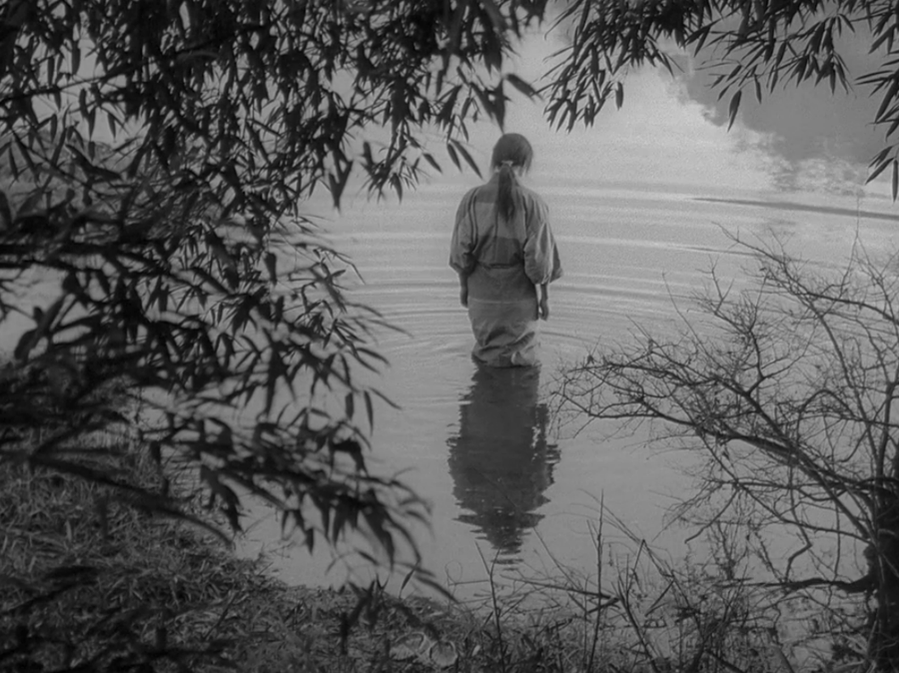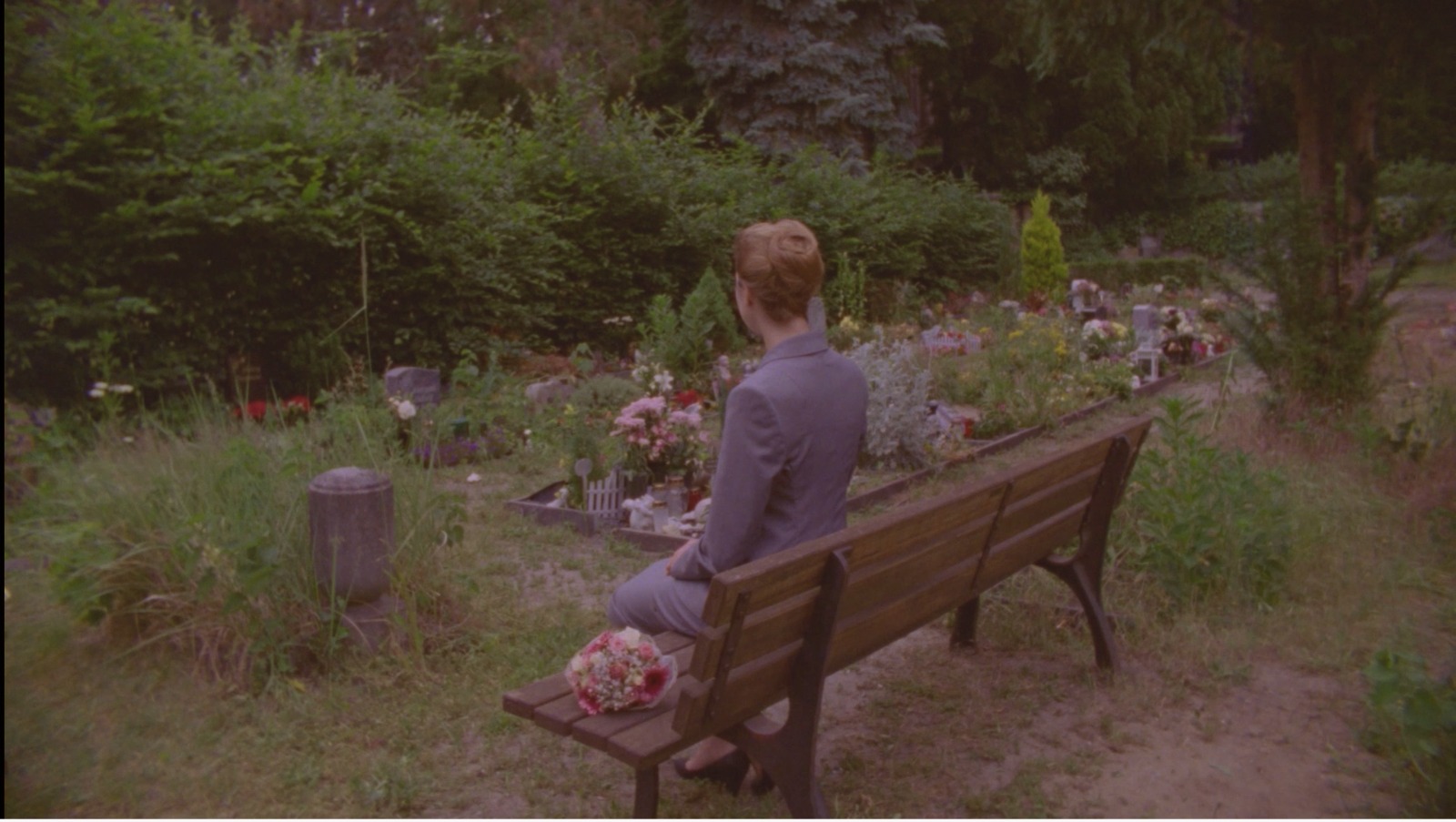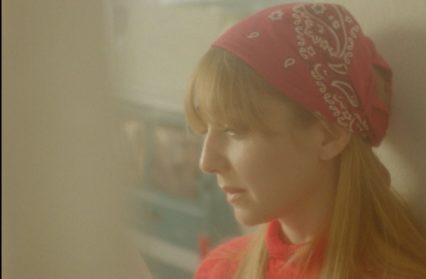Chris Durnall of Company of Sirens discusses Souvenirs of a Killing, the second part of an ongoing Hitchcock-inspired theatre project, now finding a home as a film online.
‘Can’t repeat the past? Why of course you can.’
The Great Gatsby, F. Scott Fitzgerald
In the summer of 2019, Company of Sirens produced Twelve Cabins Twelve Vacancies. It was based on events that led up to the death of my father and linked to the plot of Hitchcock’s movie Psycho, which was broadcast as he slipped away. It was described by the Guardian as ‘a fascinating meditation on grief’. I wanted to continue in the same vein and create a theatrical autobiography in ascending parts, each part linked to an artwork experienced at the time. Hence Souvenirs of a Killing, the title another lift from a Hitchcock film, this time Vertigo, which was recently voted best film of all time by the BFI.

In 1973 a good friend of mine was taken from her home and held ransom in appalling conditions. She subsequently died in tragic circumstances. The local film club was showing Vertigo. The character of Madelaine, played by Kim Novak, became a clear symbol in my impressional mind for what was and what might have been. Among many other things, the film deals with themes of dislocation, falling, dropping, and has a spirituality at its core that translates into the personal.
Like most organisations, with the onset of Covid-19 we had to adjust our approach to the development period. My colleague Angharad in Berlin, with whom I collaborated on Twelve Cabins, was helping me create the piece, together with valuable contributions from Sightlife Wales (formerly Cardiff Institute for the Blind) who I worked with last year.
We discussed personal stories of grief and loss that, apart from dealing with bereavement, dealt with coping with aging, separation and dramatic changes of circumstances. In light of the current situation, the process seemed incredibly apposite. We also explored ways in which the eyes can be used to signal and sign language and intent. There were performances of the work in progress scheduled for mid June that were clearly not going to happen. We decided that I would develop the text here while Angharad, working with a Berlin film maker, would create a short film using the text as voiceover. This was inspired by a mutual love for the poetic films of Andrei Tarkovsky. We would then produce the stage version when events permitted, aided by the film and research work and a first draft working script.

The opening quotation from Fitzgerald’s The Great Gatsby seemed appropriate. The longing to recreate the past and the inability to return there seemed to me a human necessity, one perhaps only art can even attempt to satisfy.Could there be a longing so intense that it creates what it desires? Like Gatsby, needing someone so badly you cannot picture living without them. To quote Souvenirs:
Then it happens. I know it. A message saying so merely confirms news some secret pulse had already received. I look up at our faces in the clouds and begin to fall backwards in a spiral. Vertigo overwhelms me as I clutch at objects to address my falling, broken promises, neglect, indifference, fears, laughter, joy, all come apart in my hands.
Then I let go, safe in the certain knowledge of home. The whole thing was maybe a dream. That’s one way of approaching what happened, a way as good as any other.
The connections in Souvenirs of a Killing with Hitchcock’s Vertigo, as with Psycho in the previous piece, appear to me to be fascinating and clear. This is part two of what i would like to be an ongoing project linking an artwork to personal experience, so that the memory of the event is soundtracked and enveloped by that artwork, thus with the passing of time the artwork takes over. The memory can’t exist without its context.
We believe Kim Novak in Vertigo to be possessed by the spirit of Carlotta Valdes. In the gallery she enters the painting of Carlotta as the viewer focuses on the tunnel created in her hair, then goes into the tunnel. There is a constant reference to falling and loss of balance, and a clear sense of regret.
All of these factors are contained in the “real life” narrative Souvenirs of a Killing explores. To return to the text:
It was a time of spirit and rambling conversations of mysticism and transformation. We would talk about possession. Being possessed with the spirits of the past. She believed she was being haunted. She dreamt about falling. Falling down steps, stairs or off a high building. She never of course reached the bottom. Something arrested her fall. Did she jump or was she pushed? Was she attempting to fly? The answers are quite clear to her now.
You might also like…
Helen Sandler reviews a unique screening of Alfred Hitchcock’s Blackmail, shown at Aberystwyth Arts Centre on the 29th of March, with live music performed by Philomusica and composed by Neil Brand.
Chris Durnall is a contributor to Wales Arts Review.












